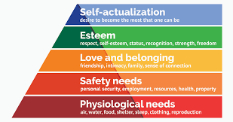I’m In The Mood For……Love!
February, the month synonymous with love.
There are all kinds of love. The love that you have for your children, your partner, your parents, your family. The love for your friends, and that very special ‘bestie’ on which you can always depend.
You have love for your pets, for your team, for your country even.
A love of nature, or running, or gin!
There are different types of love and it can manifest on different levels too. Deep, enduring love to the initial sting of young love. Unrequited love. Forbidden love. The list goes on.
How do you know that you love these things, these people?
 What do you associate with that feeling of love?
What do you associate with that feeling of love?
Where do you experience love in you body? Is it an internal or external experience?
Love is a force. Often inexplicable, random and unfathomable. It can be exciting, comforting, addictive.
It’s a complex mixture of emotions, behaviours and beliefs.
It’s also a complicated neuroscience response from the brain involving hormones such as oxytocin, dopamine and serotonin. The pleasure and reward brain centre.
 We all want, and indeed need, love. It is one of our basic requirements as a human being.
We all want, and indeed need, love. It is one of our basic requirements as a human being.
So, what gets in the way of love? Why is it stressful and difficult sometimes?
Communication is key to good relationships across the board, but it isn’t always that easy to say what you want, address niggling issues or speak from the heart, is it?
Frustration and confusion are typical emotions when talking about affairs of the heart.
And what about our relationship with ourselves?
A client of mine, we shall call her Jane, discussed with me several aspects of her life. Her relationship with her elderly mother, her friendships and a catalogue of disastrous romances. Her mother always made her feel inadequate in some way, and Jane worked hard at concealing her hurt and frustration especially as she was caring for her mother at the time. She felt very alone; no-one got in touch, no-one cared, and she felt isolated and low. Men had been less than helpful and no-one, it seemed, measured up.
Through several sessions we explored these scenarios. It boiled down to the fact that Jane relied heavily on external factors for her happiness and emotional well-being. When these systems failed, as they frequently did, she was left feeling worthless, frustrated, sad and angry that her needs where not being met adequately. So began the work of jane exploring and discovering her own strengths, abilities and skills. This was an uncomfortable process to start with and that is a common reaction to looking at ourselves as we are often not used to this level of scrutiny. It is especially uncomfortable to acknowledge our good points.
Here is an example:
Name 10 things you are not good at, or skills that you lack.
Easy, yes?
Now, name 10 things that are positive about you.
Not so easy. There’s lots of very good scientific reasons for this and lots to do with how we were bought up; our beliefs and understandings, and our experiences. But you don’t want to know about that, you want answers and solutions. Keep going with your list and for each of the points find evidence to back it up. If there is none, cross it off the list. However, if there is evidence, begin to think how you can redress this. It doesn’t have to make sense to start with, just keep thinking and writing down your ideas – something more tangible will appear.
So, here’s another exercise for you to try.
Think about all the areas of your life; home, family, friends, career, money and yourself. Rate these areas between 0 – 10; Zero being I’m least happy with this area to 10 being I’m very content with this.
What do you notice?
Knowledge is power. Whoever originally said that is dead right! As uncomfortable as this is to do it does give you valuable information for you to acknowledge, digest and start to formulate a plan with. This is important so you do not fall foul of the ‘sticking plaster’ approach where we tend to gloss over the deeper meanings in favour of a quick fix which will be just that, quick but unsustainable. A platform or firm foundations are necessary in order to prevent the rerun of typical behaviours which leave you feeling frustrated.
This can all take time and effort. It is important that you consider the benefits of engaging in this activity in order to encourage yourself to start and continue. Think about how you will feel, what else you will notice and how life will be for you when these things are sorted out.
And, if you need any help, guidance or support, drop me a message.
Please feel free to contact me for an informal chat
I offer all new clients a FREE 30 minute consultation to allow the opportunity to ask any questions and plan from there.
